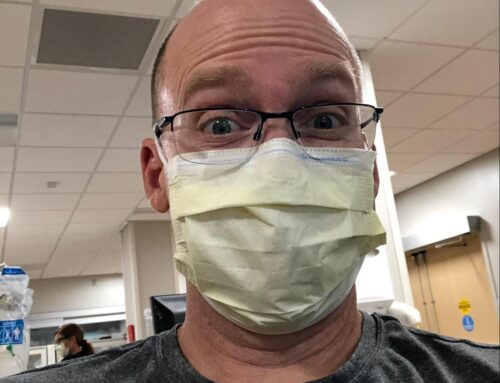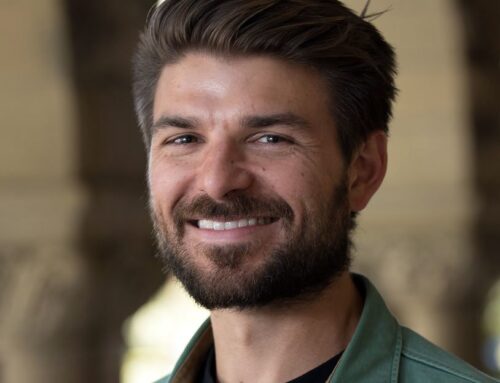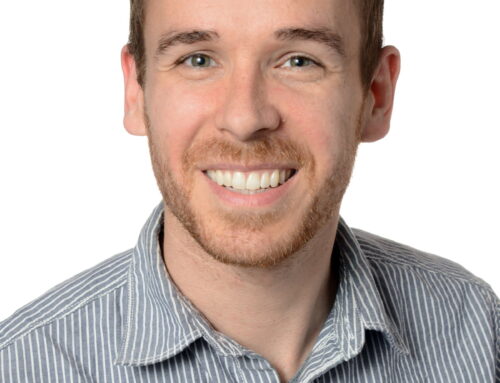Dr. Catherine Varner is an emergency physician and clinical scientist from Toronto, Canada. Being an emergency physician and a mother to two young ones, Dr. Varner’s schedule can fill up pretty quick. But despite her busy schedule, she still takes the time to take care of herself. Whether it’s tackling a running trail in the city, or exploring the forest off the beaten path, the outdoors allow her to escape from daily life. Here’s how she stays healthy in EM!
- Name: Catherine Varner

- Location: Toronto, Ontario, Canada
- Current job(s): Emergency Physician – Mount Sinai Hospital, Clinician Scientist – Schwartz / Reisman Emergency Medicine Institute, Assistant Professor – University of Toronto
- One word that describes how you stay healthy: Running
- Primary behavior/activity for destressing: Whether I am taking a long walk on Wrightsville Beach where I grew up, or running in downtown Toronto where I now live, I always think the clearest and breathe the deepest outside.
What are the top 3 ways you keep healthy?
- Being with family. There is nothing more relaxing than playing on the floor or going to the park with my 2 boys. Once the boys are asleep, my husband and I love a good couch cuddle.
- Spending time with friends. Sharing a coffee or meal with friends always reminds me to laugh and relax. Reconnecting doesn’t happen often enough, but I love picking up right where we left off.
- Running. Twenty minutes completely resets my mind and gets me ready to take on the next shift or research task.
What’s your ideal workout?
Running for an hour on any terrain is like a breath of fresh air. Toronto has an amazing (and surprising!) trail system that runs through forests and ravines. All of the sudden you’re underneath a gorgeous canopy of green, and feel a world away from the hustle and bustle! On the other hand, an hour run on city streets can be like a quick trip around the globe, as TO has phenomenal neighborhoods (Little Italy, Little Portugal, Chinatown, Annex, Cabbagetown, Danforth, etc). Also, finishing a run near the Parisian bakery or gelateria is particularly delightful!
Do you track your fitness? How?
I try to run 5 times a week. Most are around 30-45 minutes, and many of these runs are on my way to work. If I am not running regularly, my grumpy-meter starts alarming.
How do you prepare for a night shift? How do you recover from one?
I may or may not have a nap leading up to a night shift, but when I get home post-nights I have breakfast with a big glass of chocolate milk, take a shower, and then sleep for at least 4 to 5 hours.
How do you avoid getting “hangry” (angry due to hunger) on shift?
My colleagues laugh because I have brought the same snack to every shift for 5 years: 2 rice cakes with peanut butter and honey, almonds, and raisins. I eat while I am charting or reviewing test results several times throughout a shift.
How do you ensure you are mentally in check?
Sleep hygiene is one of the most important personal responsibilities of an emergency physician. For me, recognizing and relieving sleep deprivation are keys to maintaining good mental and physical health.
What are the biggest challenges you face in maintaining a longstanding career in EM? How do you address these challenges?
The biggest challenge is balancing shift work while being a mother of 2 young boys (3 years old and 1 year old). The blend of research and shift work is ideal, because the research hours are predictable and doing mostly night shifts gives me more day time to give the little guys a more consistent routine. My husband and I frequently reevaluate what is working and what is not, and plan our schedules many months in advance to avoid childcare gaps and ‘too tight’ pick-ups from daycare.
Best advice you have received for maintaining health?
As a 4th year medical student while assisting with a delivery, blood splashed in my eyes. I was inclined to ignore it and keep working, because it was a busy night and the exposure was low-risk. However, when my attending physician heard about it, she was insistent that I wash out my eyes, see occupational health, and have a post-exposure risk assessment. To this day, I remember her getting frustrated with my negligence and said, “In this career, only YOU will take responsibility for your own health.” I apply this advice to not only my self-care when I am on shift, but also to my personal life.
Who would you love for us to track down to answer these questions?
Nazanin Meshkat




